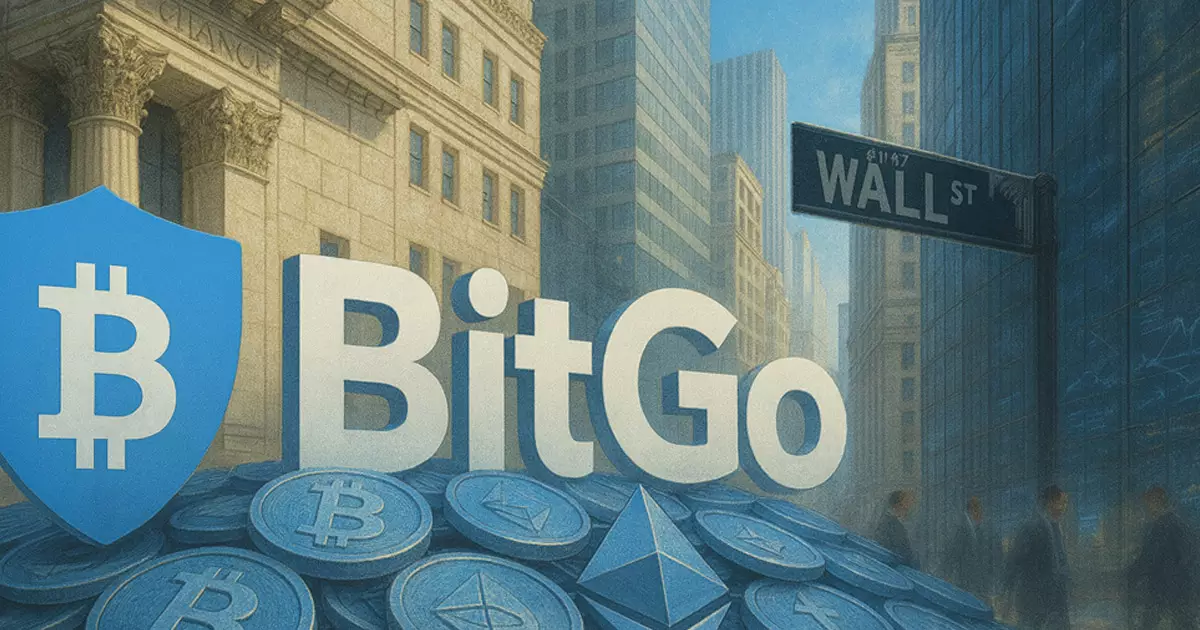The recent announcement of BitGo’s confidential SEC filing for an IPO initially appears to be a sign of growing legitimacy for the cryptocurrency industry. However, peeling back the layers reveals a complex narrative that’s far from straightforward progress. While the move might seem promising on the surface, it’s essential to scrutinize what it truly signifies about the sector’s maturity. Too often, enthusiasm for crypto startups attempting to go mainstream glosses over persistent regulatory ambiguities and the fundamental volatility that still defines this space. A company like BitGo, specializing in custody solutions tied to a notoriously unstable market, may be leveraging market momentum rather than demonstrating genuine, sustainable institutional trust.
Beyond the optics, the decision to file confidentially underscores the industry’s hybridity—part traditional financial enterprise, part speculative venture. Industry players constantly tout regulatory compliance, but achieving true regulatory harmonization remains elusive. As BitGo prepares for public markets, the underlying question persists: can a sector built on innovation still operate within the confines of clear, predictable rules, or is this just another battle between the industry’s ambitions and regulatory realities?
Global Expansion as a Political and Economic Strategem
BitGo’s recent EU approval under the MiCA framework reflects more than just strategic expansion; it’s also a political play. Gaining pan-European compliance provides a significant advantage, yet it also signals a desire to portray the sector as “regulated” and globally connected. From a pragmatic perspective, European regulators have shown greater willingness to demand accountability, pushing companies like BitGo into uncharted territory of compliance. But this move also serves the U.S. sector’s interests—an attempt to transplant the American digital asset model into other jurisdictions and showcase the sector’s international viability.
This international outlook should be met with skepticism. The EU’s regulatory framework is still evolving, and the distinctions between “regulated” and “not regulated” are often blurred in practice. It’s easy to see this as a marketing tactic to appeal to institutional investors wary of the Wild West image historically associated with crypto. At the same time, U.S. efforts to secure a bank charter indicate a recognition that integrating more deeply with the traditional financial system is critical—for better or worse. Allowing crypto firms into the banking fold creates a paradox: it simultaneously lends credibility and invites oversight that could curtail the industry’s independence.
The Market Hype vs. Genuine Sector Resilience
The prevailing narrative paints a picture of accelerating institutional adoption and a robust crypto market—Bitcoin surpassing $120,000, mainstream firms eyeing IPOs, and investor optimism swelling. However, this rapidly rising tide of market enthusiasm often masks underlying fragility. Cryptocurrency prices are notoriously susceptible to hype and speculation, and the narrative of “digital gold” often ignores the turbulence that underpins market cap figures—a fact that seasoned center-right skeptics understand all too well.
BitGo’s previous successful fundraising and high valuation suggest confidence from strategic investors eager to capitalize on this hype. But are these investments rooted in genuine demand for resilient infrastructure, or are they driven by a hope that regulation will eventually stabilize the sector? If regulatory frameworks prove ineffective or are selectively enforced, the sector’s foundation remains vulnerable. Institutional capital flowing into blockchain assets is encouraging, but it also risks inflating a bubble that could burst once the initial euphoria recedes.
The push toward IPOs in the crypto space should be viewed with a discerning eye. While it might symbolize sector maturity, it also risks turning institutional legitimacy into a pretext for greater corporate consolidation and control. For the industry to truly evolve, the focus should shift from chasing short-term gains and flashy market cap numbers to building a resilient ecosystem anchored in sound regulatory practices and economic fundamentals. Until then, Wave of IPOs remains as much a symptom of sector confidence as it does a warning sign for speculative excess.

